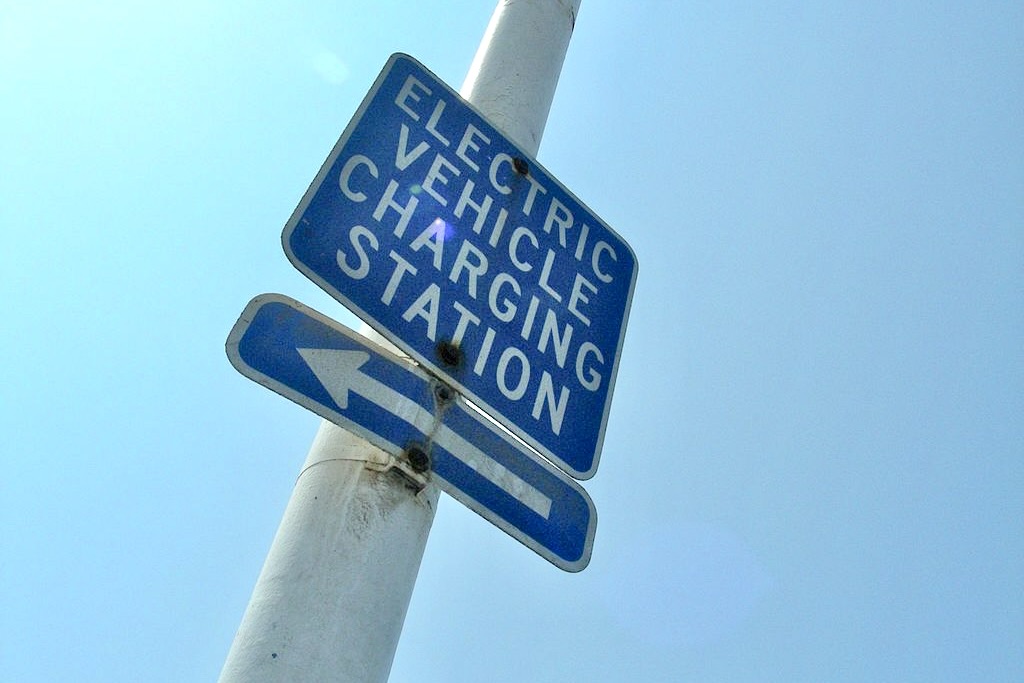Extreme weather, long driving distances and a shortage of charging stations can discourage use of electric vehicles on many reservations. Speakers at a recent Tribal Clean Transportation Program roundtable discussed solutions.
By Melanie Lenart

The pros and cons of electric vehicles on tribal nations sparked nearly two hours of discussion during a Feb. 7 roundtable on the Tribal Clean Transportation Program. The online roundtable, hosted by the Institute for Tribal Environmental Professionals, attracted 65 participants from tribal nations and those interested in assisting them.
Jaclyn Robinson, planning director for the Hoopa Valley Tribe in northern California, talked about the $600,000 the tribal nation secured in grant funding for electric vehicle charging stations.
“We had a good relationship with our selected contractor. But I will warn you there are a lot of fast-talking salesmen out there that want to pitch they can do all this for tribes,” she said. “So it’s very important to check those references.”
Robinson recommended Zero Impact Solutions, the contractor who worked with the Hoopa Nation to secure funding for 26 charging stations. The company did much of the research and writing of the grant proposals without upfront money, she said. When the check arrived, the tribe signed it over to the company and received the stations.
Because of Covid and the need to work with electricity providers, it took years before the stations were actually up and running, though, according to another speaker from the Hoopa Valley Nation, Jill Sherman-Warne.
“There are still a lot of bugs in the system,” said Sherman-Warne, who serves on the Hoopa Valley Tribal Council. “It’s because the Clean Air people aren’t talking to the public utilities people.”
Both she and Robinson urged other tribal nations to contact their utilities provider as soon as possible when considering charging stations, as energy companies control new electrical projects. That means they control when a station gets electrified.
Sherman-Warne also serves as executive director of the Native American Environmental Protection Coalition. The coalition includes 28 tribal nations in California and three other southwestern states. In her travels, she has heard many complaints about electric vehicles, such as from a couple in Salt Lake City, Utah.
“They own the vehicle but they drive it with no heating in the winter and no air conditioning in the summer because it drains your battery,” she said.
Robinson said the Hoopa Valley Tribe’s rural location, with Eureka being the closest city at 60 miles away, has many members worried about switching to electric vehicles.
“In the summer it’s 110, and in the winter, it could be snow, slides and roads closed,” Robinson said. “So, reliability for vehicles is our number one (priority) here.”
Sherman-Warne, who drives a hybrid vehicle that can run on either gasoline or battery power, said she makes an effort to check charging stations when she drives around California on business for the Native American Environmental Protection Coalition.
“I’m so grateful I went to a hybrid first,” she said. “Eighty percent of the time when I go to those EV stations, they’re not functional.”
She encouraged other tribal nations to seek a contract that includes maintenance.
Robinson said wildfires and storms can take down power lines, making the Hoopa Valley Nation four times more likely to suffer from a power outage than areas outside the reservation. As a planning director seeking self-sufficiency, she said she’d welcome some of the solar-powered charging stations described in another roundtable presentation.
Ryan Webb, engineering and planning manager for the Confederated Tribes of Grand Ronde, Oregon, spoke about the two solar-powered charging stations the confederated tribes have set up for employees to “top off” their vehicle charge for a couple of hours.
Each station can provide partial charges to about two vehicles in winter and four or five in summer, he said. And the stations can help when power lines go down.
“When we have power outage issues, we then are able to still use that battery back-up system and be able to provide power as needed as well,” Webb said. For instance, the EV charging systems kept the lights and heat on in a warming center during a four-hour power outage this winter. It even allowed some community members to charge their phones. “That in itself was a huge success for the tribe.”
Other tribal nations have embedded their electric school buses into “microgrids”—locally sourced miniature electricity grids—that allow them to tap into stored energy during off hours, such as on weekends.
The roundtable session also included several participants offering services for tribes interested in exploring electric vehicles. Alyssa Curran, a research analyst for the World Resources Institute who works on the Electric School Bus Initiative, said her group prioritizes tribal nations. A member of the Clean Cities Coalition noted that 75 locations around the country can provide free assistance to locals seeking renewable energy solutions. Employee Laura Beshilas said the National Renewable Energy Laboratory can help tribal nations find the right renewable energy sources.
Roundtable organizer Heather Bartlett and others with The Institute for Tribal Environmental Professionals can provide guidance on electric vehicles, charging stations, outreach material, and identifying funding resources based on transportation needs.
The institute serves as the technical adviser for the 92 tribes who received a total of $51 million from a Volkswagen Diesel Emissions Environmental Mitigation Trust. Projects include installing electric vehicle charging stations.
The next roundtable discussion will be held April 3, Bartlett said. Those interested in attending the online event can contact her at heather.bartlett@nau.edu.
Melanie Lenart is News and Opinions Editor for Native Science Report.
Story published February 15, 2023
• • •
Enjoyed this article? Enter your email to receive notifications.
